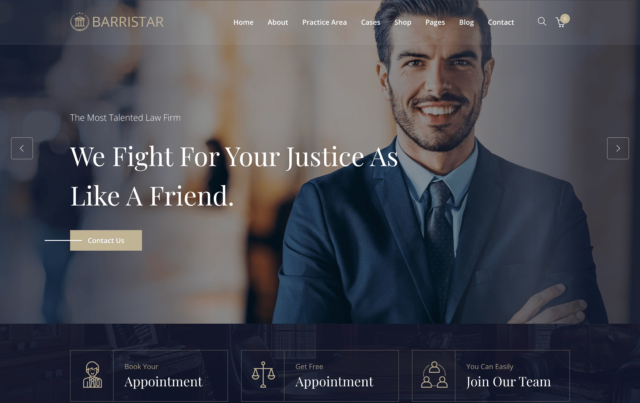In today’s digital age, cybersecurity has become a critical concern for all industries, and law firms are no exception. With the increasing prevalence of cyberattacks and heightened concerns about privacy, protecting sensitive client information is no longer optional, it’s essential. A security breach can jeopardize not only client confidentiality but also the reputation and trustworthiness of your law firm.
This article explores the importance of cybersecurity for law firms, the risks of inadequate protection, and actionable steps to safeguard sensitive client data.
Why Cybersecurity Matters for Law Firms
Law firms handle a treasure trove of sensitive information, including personal details, financial records, intellectual property, and privileged communications. This makes them prime targets for cybercriminals. A data breach can have serious consequences, including:
- Loss of Client Trust
Clients expect their personal and legal information to remain confidential. A breach of this trust can lead to damaged relationships, loss of clients, and long-term reputational harm. - Ethical and Legal Obligations
Law firms have a professional duty to protect client confidentiality. Many jurisdictions require compliance with strict data protection and privacy regulations, such as the GDPR or CCPA. Failing to comply can result in legal penalties and ethical violations. - Financial Losses
Recovering from a cyberattack can be costly, with expenses including forensic investigations, legal fees, regulatory fines, and potential lawsuits. - Reputational Damage
News of a data breach can spread quickly, tarnishing your firm’s reputation and making it difficult to attract new clients.
Common Cybersecurity Threats Facing Law Firms
1. Phishing Attacks
Phishing emails are designed to trick employees into revealing sensitive information or downloading malicious software.
2. Ransomware
Ransomware locks your firm’s data until a ransom is paid. Law firms are often targeted due to the high value of their data.
3. Insider Threats
Employees or contractors, whether intentionally or unintentionally, can expose sensitive data through negligence or malicious intent.
4. Weak Passwords
Inadequate password management can give hackers easy access to your systems.
5. Unsecured Networks
Accessing sensitive data over unsecured public Wi-Fi can expose your firm to breaches.
Best Practices for Law Firm Cybersecurity
1. Invest in Secure Technology
Use secure software and tools designed specifically for law firms. Look for solutions that offer encryption, access controls, and secure communication channels.
Example:
Use client portals to share sensitive documents securely instead of relying on email.
2. Implement Multi-Factor Authentication (MFA)
Require employees to use MFA for all systems. This adds an extra layer of protection by combining passwords with additional verification steps, such as a code sent to a mobile device.
3. Train Your Team
Human error is one of the leading causes of data breaches. Provide regular cybersecurity training to educate your staff on recognizing phishing emails, using strong passwords, and safely handling sensitive data.
Example:
Run a simulated phishing attack to test your employees’ awareness and provide feedback for improvement.
4. Use Encryption for Data Protection
Ensure all client communications and data storage are encrypted. Encryption ensures that even if data is intercepted, it cannot be read without the proper decryption key.
5. Develop a Data Breach Response Plan
Have a plan in place to respond to cybersecurity incidents quickly and effectively. This should include steps for identifying the breach, containing the damage, notifying affected parties, and reporting to regulatory authorities.
6. Limit Access to Sensitive Data
Adopt a “least privilege” approach, where employees only have access to the data they need to perform their job. This minimizes the risk of insider threats and accidental exposure.
7. Keep Software Up-to-Date
Outdated software often contains vulnerabilities that hackers can exploit. Regularly update your systems, applications, and security software to ensure they are protected against the latest threats.
How Cybersecurity Protects Your Reputation
Your law firm’s reputation is built on trust. Clients choose your firm not only for your legal expertise but also because they trust you to protect their sensitive information. By prioritizing cybersecurity, you demonstrate your commitment to maintaining this trust, which can set your firm apart in a competitive market.
Example:
A data breach at a competing firm can lead potential clients to look for a more secure option—your firm, if you’ve demonstrated strong cybersecurity measures.
Case Studies: The Cost of Inadequate Cybersecurity
- Large Firm Breach:
A global law firm suffered a ransomware attack, with sensitive client data stolen and leaked online. The firm faced regulatory fines, lawsuits, and significant reputational damage. - Small Firm Phishing Scam:
A small law firm fell victim to a phishing email, leading to unauthorized access to client files. The firm’s lack of a breach response plan prolonged the crisis, causing clients to lose trust.
Both cases highlight the high stakes of cybersecurity for law firms of all sizes.
Staying Ahead with a Proactive Approach
Cybersecurity isn’t a one-time task—it requires continuous monitoring, training, and adaptation to new threats. Here’s how to stay proactive:
- Conduct regular security audits to identify vulnerabilities.
- Partner with cybersecurity professionals to ensure your systems are secure.
- Stay informed about emerging threats and best practices.
Our Final Thoughts: Protecting Your Clients and Your Firm
In the legal industry, safeguarding client information is both a professional duty and a business necessity. Cybersecurity is not just about protecting data—it’s about protecting your clients’ trust and your firm’s reputation.
By investing in secure technology, training your team, and adopting best practices, your law firm can minimize risks and position itself as a trusted, reliable partner for clients in an increasingly digital world.
Don’t wait for a breach to take cybersecurity seriously. Start implementing robust measures today to secure your firm’s future.








